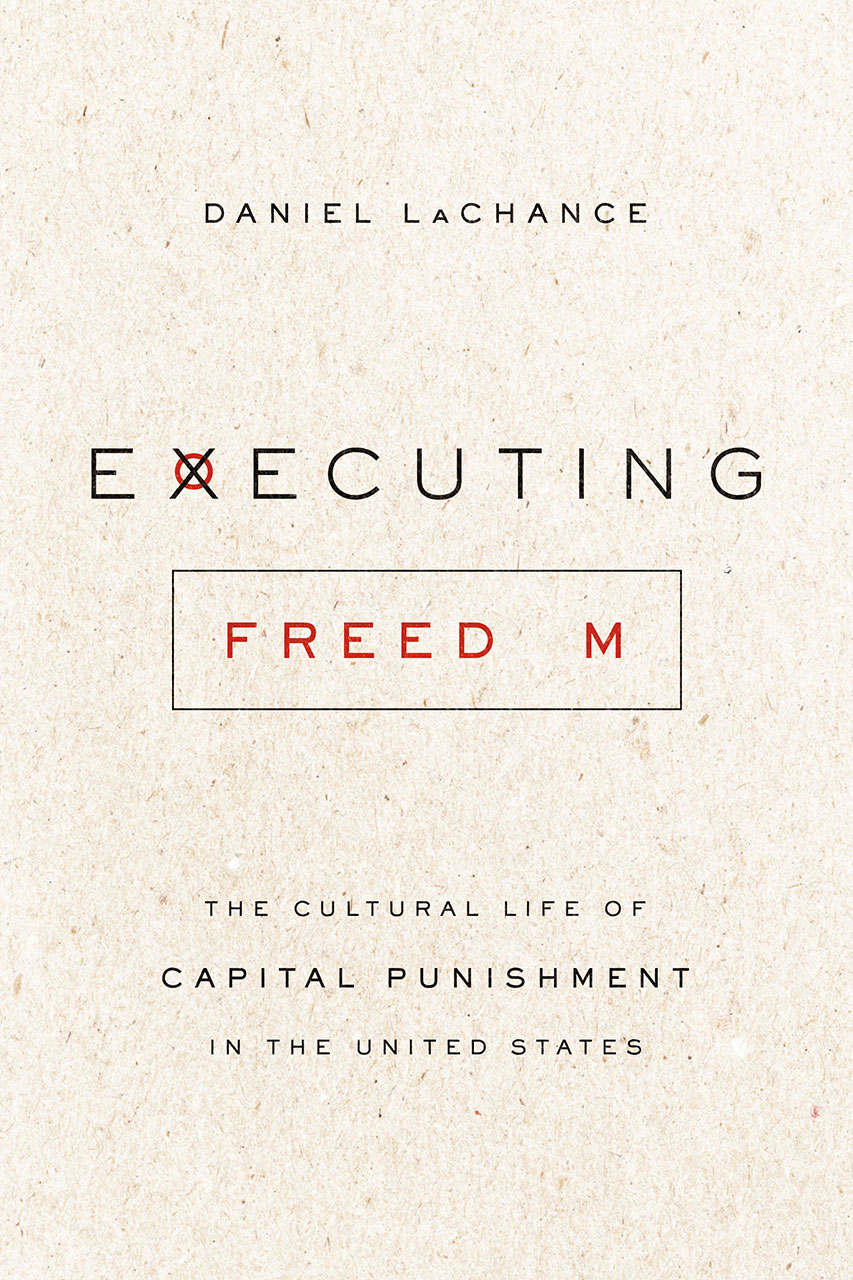New from the University of Chicago Press:
Executing Freedom: The Cultural Life of Capital Punishment in the United States (Nov. 2016), by
Daniel LaChance (Emory University). A description from the Press:
In the mid-1990s, as public trust in big government was near an all-time
low, 80% of Americans told Gallup that they supported the death
penalty. Why did people who didn’t trust government to regulate the
economy or provide daily services nonetheless believe that it should
have the power to put its citizens to death?
That question is at the heart of Executing Freedom,
a powerful, wide-ranging examination of the place of the death penalty
in American culture and how it has changed over the years. Drawing on an
array of sources, including congressional hearings and campaign
speeches, true crime classics like In Cold Blood, and films like Dead Man Walking,
Daniel LaChance shows how attitudes toward the death penalty have
reflected broader shifts in Americans’ thinking about the relationship
between the individual and the state. Emerging from the height of 1970s
disillusion, the simplicity and moral power of the death penalty became a
potent symbol for many Americans of what government could do—and
LaChance argues, fascinatingly, that it’s the very failure of capital
punishment to live up to that mythology that could prove its eventual
undoing in the United States.
A few blurbs:
“Executing Freedom
is a truly extraordinary book. It offers a remarkable reading of the
resonance of America’s death penalty and some of the deepest strains in
our culture, in particular beliefs about negative freedom. In addition,
LaChance offers important lessons for abolitionists, warning that the
problems in the death penalty system are not simply its assault on human
dignity or its arbitrary and flawed administration, but rather its
failure to generate the meaning that modern citizens crave. From start
to finish, this book provides a sophisticated and persuasive analysis of
the cultural life of capital punishment.” -- Austin Sarat
“LaChance
brilliantly reframes the recent history of the death penalty in the
United States around the competing discourses of freedom, governance,
and agency. His analysis is complex and compelling. Interpreting
fictional and non-fictional sources of crime and punishment ranging from
In Cold Blood to the TV series Dexter, he argues that the
death penalty reemerged in the 1970s as an assertion of the negative
freedoms ‘from’ big, centralized, welfare oriented, technocratic
government. His conclusion regarding the future of the death penalty is
startling: the death penalty will become a casualty of its own success.
Not only has it failed in its promise of retributive justice and moral
certainty, it has become the apotheosis of big government programs it
was supposed to supplant. This book will change the way scholars think
about the death penalty and the way activists work to abolish it.” -- Patrick Ewick
More information is available
here.
